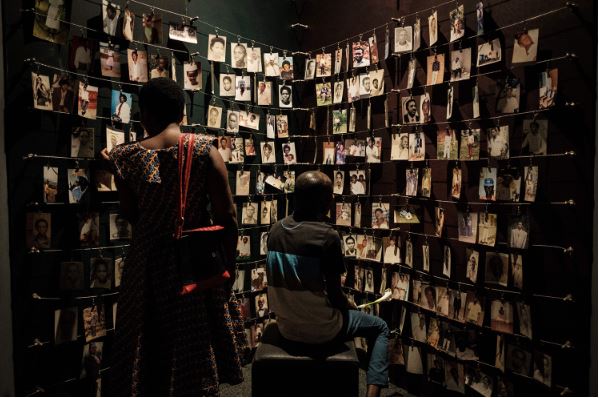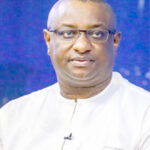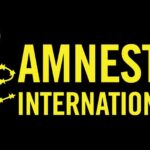On the eve of Genocide Remembrance Day, a webinar titled “Recognition of the Bangladesh Genocide” brought together international experts and intellectuals to hold Pakistan accountable for the war crimes of 1971. Organized by the Bangladesh History Olympiad and Mukto Ashor, a prominent Bangladeshi NGO, the event served as a platform for educators, researchers, activists, and authors to revisit the atrocities faced by the people of East Pakistan, now known as Bangladesh.
The somber mood reflected the horrific events that unfolded on March 25, 1971, 53 years ago. Participants paid tribute to the victims, primarily civilians – students, women, and children – targeted by the West Pakistani army and local collaborators. Estimates suggest that as many as 3 million Bengalis perished during the nine-month-long liberation war.
Priyajit Debsarkar, the London-based author who hosted the webinar, set the tone by highlighting the historical context. He described the unprovoked brutality unleashed by Pakistan in response to the Bengali aspiration for democracy after their victory in the 1970 general election. This marked the start of the Bangladesh Liberation War. Debsarkar further emphasized the lasting impact of these events, resonating even today. He noted that while Gary Bass, an American diplomat who witnessed the horrors firsthand, had termed it a “forgotten genocide,” a new generation is demanding justice.
Debsarkar elaborated on the efforts undertaken by the organizers. These included collecting data on genocide across Bangladesh’s districts, documenting mass killings, interviewing survivors’ families, and raising awareness through publications and international forums.
Syed Muntasir Mamun, Chief Innovation Officer and Director-General at Bangladesh’s Ministry of Foreign Affairs, delivered the keynote address. He shared his personal experience growing up in a time when discussing the Bangladesh genocide, alongside the Holocaust, was met with denial. He emphasized Bangladesh’s ongoing pursuit of justice, highlighting the readily accessible evidence of atrocities scattered throughout the country. He stressed their openness to international investigations and reiterated their gratitude to India for the crucial support provided during the war.
Stephane Michot, President of IDEAL International Foundation in Paris and a renowned international lawyer, emphasized the global significance of the 1971 events. He stated that acknowledging the suffering of victims, the resilience of survivors, and the importance of upholding human rights constituted a shared responsibility. He highlighted the lack of official recognition for the Bangladesh genocide, which he described as a stain on humanity’s conscience.
Michot’s call was echoed by Biro Diwara, Secretary-General of Interfaith International, a UN-accredited human rights NGO. He proposed a resolution for recognition at the UN Assembly in September 2024, drawing parallels with the recognized Rwandan genocide. He stressed the importance of accountability and pledged his organization’s support in amplifying Bangladesh’s voice within the UN.
Adding to the international chorus, Christopher Blackburn, an associate of the Bangladesh Europe Foundation in London, addressed the webinar through a video message. He underscored the need to acknowledge not only the brutality but also India’s critical role in supporting the Bengali struggle. He criticized Pakistan and its allies for escaping justice for so long, while commending Bangladesh’s contribution to global peace. Blackburn urged the UN to break its silence and recognize the genocide, particularly considering the growing demand for justice from a new generation. He highlighted the contrast between the UN’s founding purpose of preventing such atrocities and its failure to act in this case. He further commended Bangladesh’s efforts to hold perpetrators accountable through the International Crimes Tribunals established in 2009.
Bob Lancia, a former US legislator and educator, concluded the webinar with a poignant reminder of the human dimension of the tragedy. He stressed that ultimately, the victims were ordinary people yearning for peace.
Additionally, another expert and Presidium member of BD History Olympiad National Committee, Dhaka, AKM Shahnawaz said, “The brutal genocide of East Pakistan, present-day Bangladesh, is a dark chapter. In the aftermath of the liberation war, there have been countless killing fields. There are numerous examples of torture and rape by the Pakistan army and its collaborators. It is incumbent upon us as champions of freedom to honour the victims. Let us stand in solidarity.”
The thank-you note was delivered by Abu Sayed, the General Secretary of Bangladesh History Olympiad, who thanked all the participants for their solidarity and support in making Pakistan accountable for its actions and brutalities of 1971.
The webinar served as a powerful platform for raising awareness about the 1971 Bangladesh genocide. By bringing together international voices, the event highlighted the ongoing demand for recognition and justice for the victims and survivors. The call to action directed at the UN and the international community leaves the stark reality of the unaddressed genocide unforgotten.

 Join Daily Trust WhatsApp Community For Quick Access To News and Happenings Around You.
Join Daily Trust WhatsApp Community For Quick Access To News and Happenings Around You.
